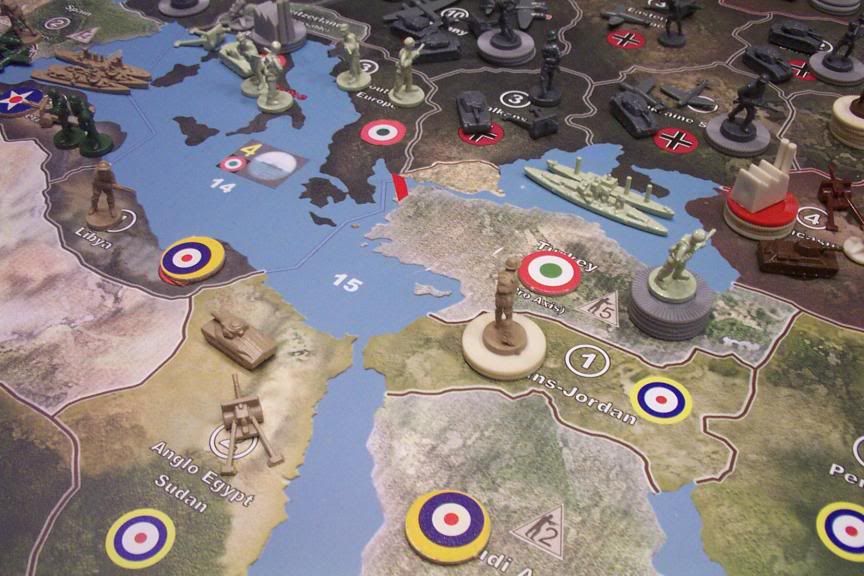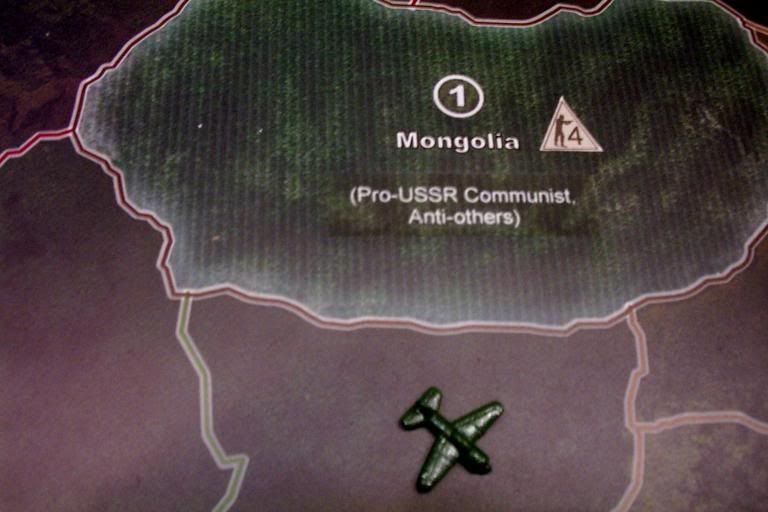This is what we do in game. Each neutral has a territory value and some kind of army and a few ships. You can attack them if you want. But u need to capture each neutral territory to get icp income.
If you lose battle then just that lone neutral joins other side.
But we also have a cost to try and influence a strict neutral to your side and you receive the territory value towards income and what is there for the ground troops and a possible ship. Nothing stronger than a Destroyer.
Not all countries can influence the same neutrals. We roll a d20 and a 4 or less u get neutral.
This is just an idea u may look at.
Spain and Turkey have the biggest Amy but cost more for those 2 to try and get.
Neutral Negotiations (Updated)
-
how about a twilight struggle thing for the money. for every adjacent territory you have to the neutral you get -1 to the cost (after all the dice rolling and math) vice verse you get +1 to the cost for every enemy adjacent territory
-
We’ve been using a political influence system on neutrals for about a year now. Our rules dictate a slower developing system that requires a player to build relations in stages. This allows opposing players time to react and possibly counter those negotiations.
The first stage is a political alliance. A political alliance allows the the player to move units through that neutral country, and allows the player to go for the next level of influence.
The second stage is an economic alliance. An economic alliance allows the player to move through the country, access to that countries IPCs as if they controlled it, and allows the player to go for the 3rd and last level of influence.
The third stage is a military alliance. A military alliance allows complete control of the country including all units present.
All this is done at the end of each game turn. Players receive influence points based on their current position on the IPC chart. Each country has a list of neutrals they are allowed to influence on the back of their set-up charts. Our list is designed to keep it somewhat historically accurate, and to prevent a situation like the US influencing Turkey, building a factory, and running amuck. Each neural has its own cost to influence determined by a base cost of influencing, plus the cost values of all units that neutral controls, plus all the IPC values the neutral possesses.
Once each player chooses the neutrals they want to influence they make an attempt roll. A political alliance has a 50/50 success rate. Once a political alliance is achieved the player can attempt to go for an economic alliance at a little higher success rate and a bit lower cost to influence. When going for a military alliance it’s again a little higher success rate than the economic alliance and lower cost to influence.
Only the major powers are allowed to influence neutrals. Players can save their influence points as some neutrals have high influence costs. Players may influence any number of neutrals they can afford each turn, but only one attempt can be made per neutral per turn. Players make their influence choices simultaneously, and privately at the end of each game turn so it’s possible that players can be trying to influence the same neutral each turn.
Players can make attempts on neutrals from their list even when another player has a political or economic alliance with that neutral. Once a military alliance has been achieved it will be a permanent part of that power unless occupied militarily. By making attempts on neutrals with early level alliances the player can possibly shift that neutrals status back one stage towards true neutral. If two players make attempts on the same turn, and are both successful they simply cancel each other out.
Wow. Sorry was so long. :-). Like I said we’ve used this system for about a year and we love it. Some games it has little effect as players keep trying to cancel each other out. Some games get a bit crazy. I once had a strong presence in South America with my Germans. We like that it’s a slow developing system do there aren’t any suprise game changers.
-
that’s a good gradual system of developing an alliances instead of sudden swings, maybe the chart( with the change listed in the forum) posted at the begging plus this system of growing an alliance is the best way to use the neutrals. it would keep easy buys out of the question and no sudden game changers like first turn German turkey. :-)
-
Here is my new revised chart - it is a little more realistic. Now there are three columns - the first is if the country you are negotiating with is pro-your side. The second is if the country is pro-neither side, and the third is if the country is against your side.

Notice now it is harder overall to get a neutral to join you and more expensive. (after all, historically neutrals did not participate - it should be hard to get them to join) It is even harder to get a neutral who is against you to join you. (The chance that a neutral will talk to you is printed above each column in the form of a percentage.) The highest economic value of any neutral on my map is 2.
On my map, Turkey has a value of 2, will spawn 5 infantry if it joins the war, and is pro-axis.

This means there is only about an 8% chance that Turkey will even listen to the British. Italy has a 28% chance of getting somewhere with Turkey, however. If Italy rolls a 9 in negotiations with Turkey, it would cost Italy 2x7 or 14 IPCs for Turkey to join the Axis. Keep in mind however, that Italy will gain 5 infantry for pursuing this, worth 15 IPCs. Italy is pictured here having successfully negotiated for Turkey. There is one Italian unit on top with the five Turkish infantry represented by the chips in the stack below. Italy can begin using these units on his next turn. We gametested this the other night and it works well.
Mongolia on my map is more historically marked - it says “Pro-USSR Communist, Anti-all others” this means that it is doubtful if Japan or the USA will get anywhere with Mongolia - only the USSR has much of a chance.

If Russia successfully negotiates with Mongolia, then 4 infantry will be raised there to join the allies. �
-
so for 1940 could we just take pro, neutral, and against out and put political, economic, and military instead so to use the alliance leveling up method?







